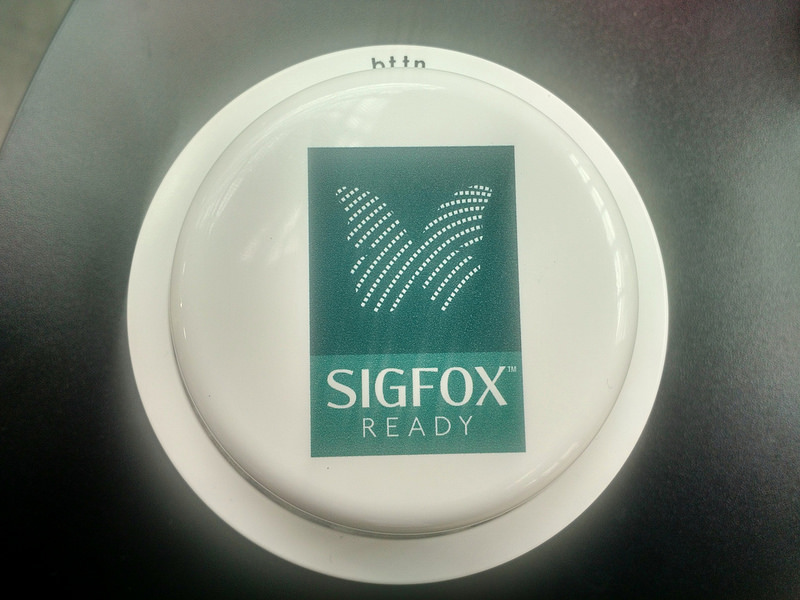Jon Evans
More posts from Jon Evans
It’s heeeere! The Internet of Things, I mean. I just spent several days at the Connected Conference in Paris, which focused on IoT hardware. They built a whole home full of connected devices, showcased the War for the WAN and underscored that the IoT is — as always — not quite what we imagined, and not quite what we hoped.
Home and away
The home was interesting: it boasted “smart” shutters, speakers, heater, boiler, umbrella, mirror, toothbrush, shower, bed and a scent-driven alarm clock, along with the obvious smart lock, Nest, Dropcam and Echo. Did all of these things actually seem useful? Well, no. But it did reinforce that the Echo is a big deal.
As more things in your home (which, let’s remember, are still not “your” things, unless you have root access, which you won’t) accumulate membership in your Wi-Fi network, the more cluttered any kind of computer or phone dashboard gets and the more important a single simple interface becomes. The Echo has every chance of becoming the de facto control center for hundreds of millions of homes. No wonder Google (and maybe Apple) are racing to introduce competitors.
Tomorrow’s surveillance today
But while homes get all the press, the IoT will largely consist of industrial surveillance. I don’t necessarily mean that in the scary political way, although there’s plenty of that: Global Sensing, for instance, has built neural networks that live on the edges of the network rather than in data centers, which can handle facial and posture recognition at a rate of 480 parsed images/second on a Raspberry Pi. Their admirable intent is to, for instance, identify people stricken by illness, or would-be suicide jumpers, in Paris Metro stations; but they still sound eerily like they could easily become the tools of a police states.
Relatedly, of course, the IoT has every chance of becoming a security nightmare — though everyone at the conference was at least talking about security, which offers some hope of salvation.
Mostly, though, the IoT is about collecting industrial data on an industrial scale. Tracking vibrations in buildings to measure their stability. Tracking smells via adsorption, courtesy of the very cool Aryballe Technologies‘ tech. Tracking noises, lights, moisture, toxins. And then making this data available despite the physical restrictions of battery power and radio networks.
The war for the WAN
Speaking of networks: Did you know there is a three-way war on to be the Wide Area Network of the IoT? Choose your allegiance: Sigfox, LoRa, or NB-IOT! I was especially impressed by SigFox. NB-IOT is a standard that existing wireless carriers claim they’ll implement any year now. LoRa is a loose “open” alliance, in the sense that it has a single manufacturer (Semtech.)
Sigfox, though, is a really interesting company. Their ambitious objective — a level of ambition which is all too rare in France — is to become a bona fide global utility. They want to create a vast radio network that anyone anywhere can use for IoT data, for the low price of one euro per device per year.
Sigfox’s bandwidth is extremely limited — 12 bytes per message; an example of 140 messages/day was cited — but that suffices for most sensors, and it’s extremely low power. We were shown a small GPS tracker that can last for an entire month, and a moisture sensor with an expected battery lifetime of two years.
Like LoRa, they use unlicensed ISM bandwidth, which makes rollouts much easier. They’re only now expanding into the U.S., but they expect to cover the 100 largest U.S. cities by the end of this year.
The best thing about Sigfox is its simplicity. Take a device, pay the euro, plant the device anywhere within range and Sigfox will handle capturing its sensor data and forwarding it to your cloud servers. (And/or sending messages back; it’s a two-way service.) Like Amazon, it doesn’t just want to be a company, it wants to become a utility.
And, of course, with the advent of wide-area low-power networks like this, the new limiting factor for the Internet of Things becomes the sensors, not the networks. Interesting times indeed.
1Full disclosure: This trip to France to visit the French tech scene was paid for by Business France, a tentacle of the French government. Studies show that this inevitably subconsciously biases me in their favor. (Although, interestingly, the bias effect seems to be substantially larger for small gifts than large ones.)































Comment